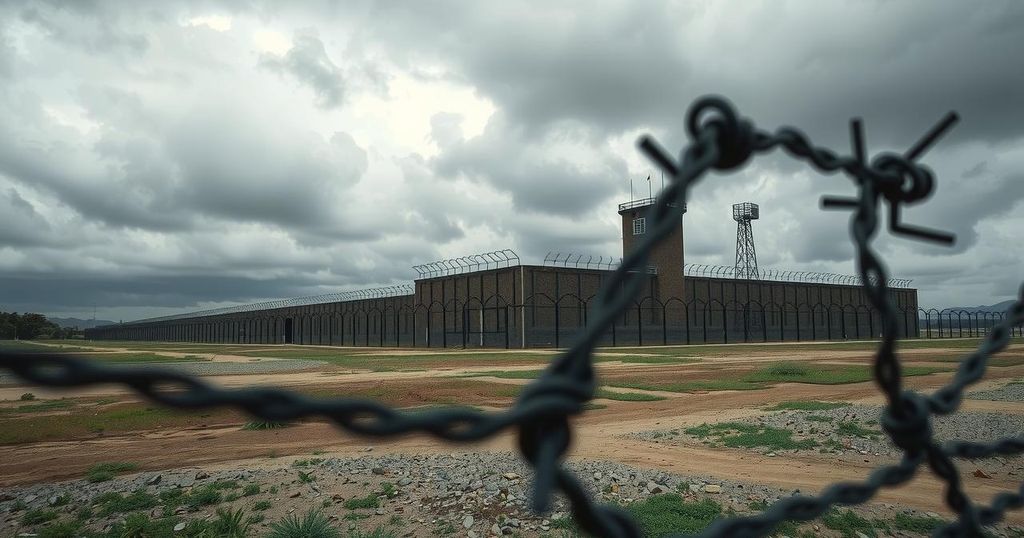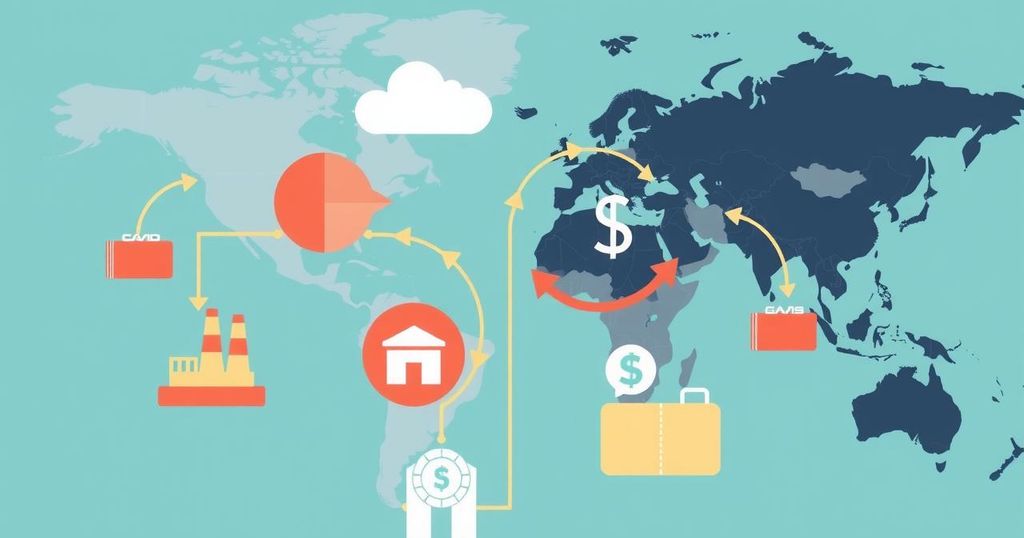Politics
ASIA, BUKELE, D. C, DEPARTMENT OF STATE, DEPORTATION, EL SALVADOR, EXTRADITION, HUMAN RIGHTS, JUSTICE DEPARTMENT, KA, KAROLINE LEAVITT, LAW, LEGAL, LOS ANGELES, MARCO RUBIO, NAY, NAYIB BUKELE, NORTH AMERICA, PHILIPPINES, TREN DE, TREN DE ARA, TREN DE ARAGUA, TRUMP, U. S, UNITED STATES
Nia Simpson
Trump Administration’s Controversial Deportation of Venezuelans Amid Legal Conflicts
The Trump administration deported around 250 Venezuelan nationals to El Salvador, invoking wartime powers despite a pending court order aimed at halting such actions. This momentous legal and humanitarian situation highlights concerns regarding the use of the Alien Enemies Act and immigrant rights, as numerous deportees were identified as gang members. Uncertainties regarding their legal standing in the U.S. and the President’s authority abound, prompting further legal challenges.
The Trump administration deported approximately 250 Venezuelan individuals whom it identified as members of the Tren de Aragua gang to El Salvador over the recent weekend. This action took place despite a federal judge in Washington, D.C. issuing an emergency order aimed at halting immediate deportations using wartime powers. Senior Justice Department officials maintained that, due to timing, the deportations could not be prevented as the deportation flights were already airborne.
President Trump invoked the Alien Enemies Act of 1798 against Tren de Aragua, an extraordinary measure not applied since World War II. This law empowers the president to detain or deport nationals from an enemy nation during times of war or invasion. The action also involved the deportation of two alleged leaders of the MS-13 gang, which has been designated as a foreign terrorist organization by the Trump administration.
Following the deportations, there remains uncertainty regarding the jurisdiction U.S. courts may exert over the deported individuals. Government attorneys contended that some individuals had already been removed before the judge’s order was issued. The Alien Enemies Act facilitates an expedited removal process, which bypasses normal immigration proceedings, including asylum claims.
There are apprehensions among immigrant rights advocates that this proclamation may lead to further targeted deportations, potentially affecting individuals regardless of their criminal background. Historical precedents reveal that the Alien Enemies Act was previously utilized during World War II to intern thousands based on their nationality.
The American Civil Liberties Union (ACLU) and Democracy Forward have initiated legal measures to suspend the deportation order, arguing that the Alien Enemies Act should not apply during peacetime. Judge James Boasberg has temporarily blocked the deportations of five Venezuelan individuals but has extended the ruling to encompass all affected by the proclamation.
In response to the U.S. actions, President Bukele of El Salvador announced the reception of the deported individuals, who will be confined in CECOT, a special facility for gang members. The Salvadoran government actively aims to detain suspected gang affiliates, leveraging stringent laws that permit such detentions without substantial evidence. Secretary of State Marco Rubio indicated that El Salvador agreed to accept deportees from the U.S. at a nominal cost, expressing gratitude for this arrangement.
In summary, the Trump administration’s decision to deport hundreds of Venezuelans amidst a conflicting judicial order raises significant legal and humanitarian concerns. This action, unprecedented in modern times through the utilization of the Alien Enemies Act, prompts substantial criticism from advocacy groups. The ongoing legal proceedings future implications suggest profound questions regarding deportation practices and the legal parameters surrounding gang affiliations. Moving forward, clarity on jurisdiction and the rights of deported individuals remains critical for all involved.
Original Source: www.npr.org








Post Comment